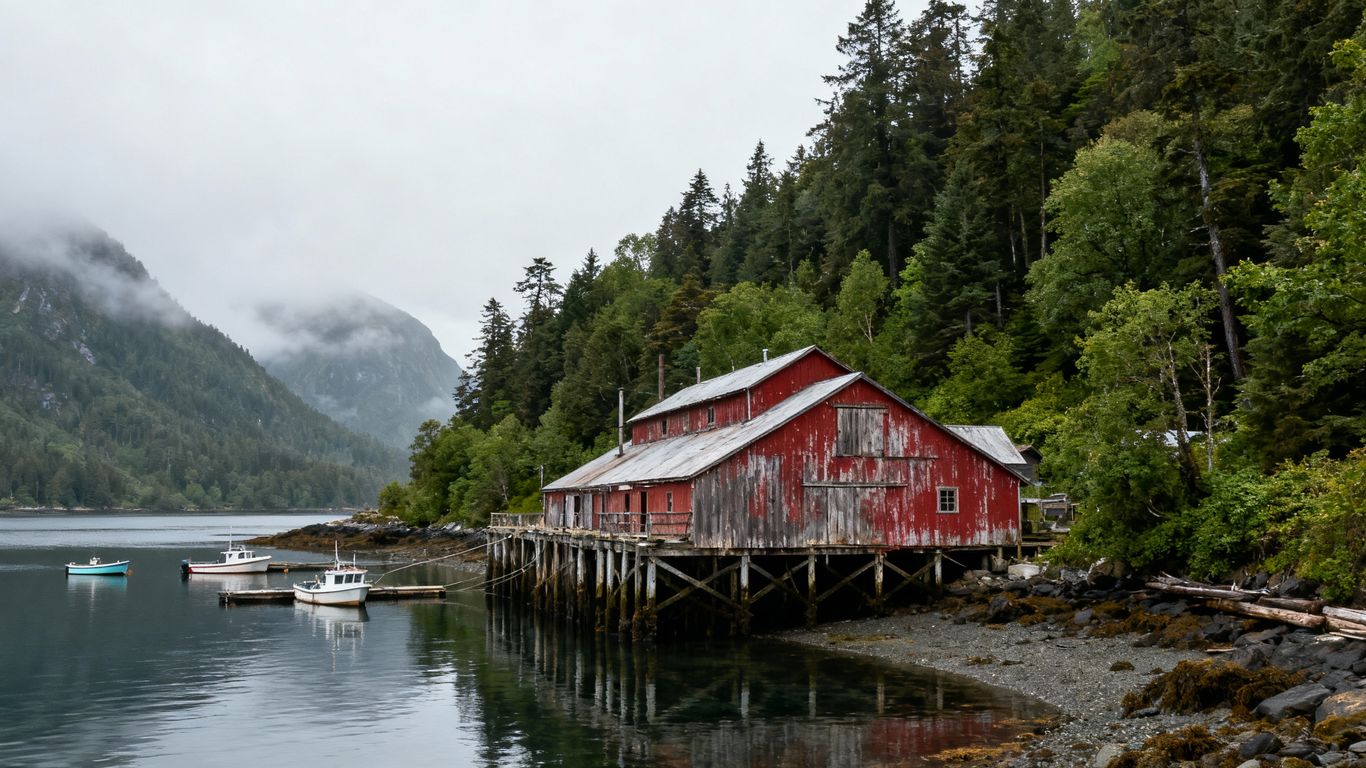
Along an isolated stretch of British Columbia’s rugged coastline, a piece of Canadian history has been transformed from an abandoned fish-packing facility into a vibrant and remote getaway. This 74-acre property on the Skeena River, originally founded in 1889 as Cassiar Cannery, is now a sought-after hospitality retreat and is currently on the market for $9 million.
When Justine Crawford first set eyes on the derelict Cassiar Cannery nearly 20 years ago, few could imagine it becoming a destination for travelers and relaxation seekers. With her husband, Mark Bell, she undertook the enormous task of clearing and restoring the property, a process that involved moving 220 tons of industrial debris and reclaiming both buildings and history from nature’s grasp.
The cannery had once been a small community unto itself, supporting up to a thousand workers at its peak. After decades of neglect, the couple breathed new life into the manager’s houses and cabins, many of which stand on wooden stilts by the tide. The restoration made ample use of salvaged wood collected from the nearby waterfront and forest, blending sustainability with heritage.
Today, Cassiar Cannery is known for its self-catered guest houses, each equipped with its own kitchen and multiple bedrooms. Visitors can unplug from modern life, as some cabins offer the chance to disconnect entirely from the internet and embrace the remoteness of the north coast.
The cannery’s offerings have evolved over time. What began as simple cabin rentals for fishermen has expanded to include themed retreats and environmentally focused events. Activities can range from yoga and crafting to canoeing on the estuary, making it a popular destination for those seeking tranquility and connection with British Columbia’s untouched wilderness.
Crawford’s stewardship transformed a potential industrial waste site into a beloved stop for ecotourists and relaxation seekers. Now, with her family’s focus shifting, she’s placing the property in new hands, hoping that the next owner continues the cannery’s story as a haven for guests and possibly conservation.
The remote location, accessible by a scenic drive from Prince Rupert or even by train, remains one of its great charms. With a well-established hospitality business and a loyal clientele, Cassiar Cannery stands as an example of adaptive reuse and respectful engagement with the province’s coastal history.